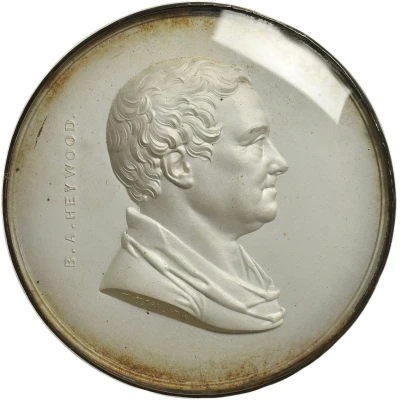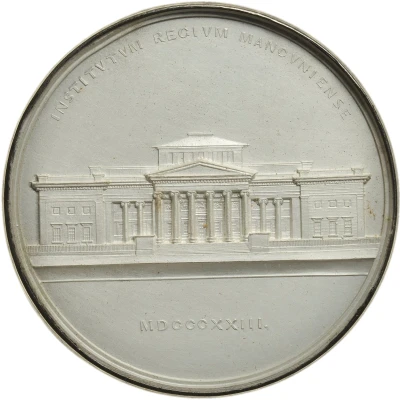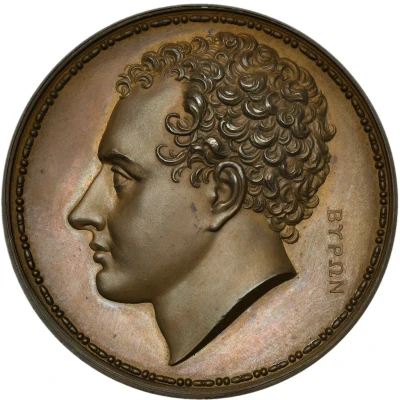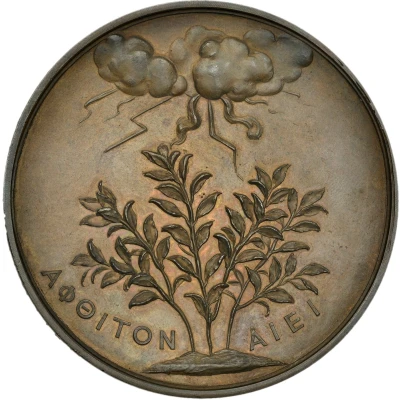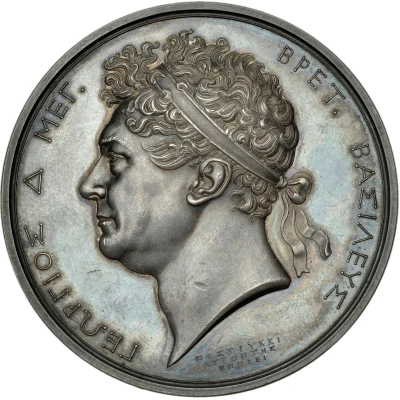
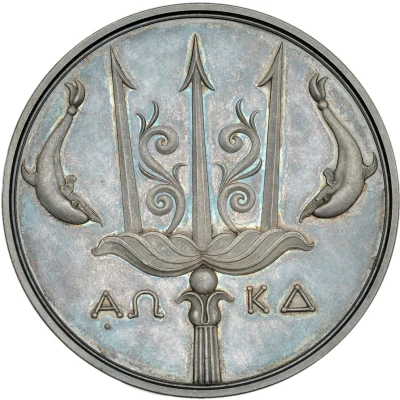

Medal - George IV Greek; silver
1824 year| Silver | - | 60 mm |
| Location | United Kingdom (United Kingdom, British Overseas Territories and Crown Dependencies) |
|---|---|
| King | George IV (1820-1830) |
| Type | Medals › Art medals |
| Year | 1824 |
| Composition | Silver |
| Diameter | 60 mm |
| Shape | Round |
| Technique | Milled |
| Updated | 2024-11-14 |
| Numista | N#408762 |
|---|---|
| Rarity index | 100% |
Reverse
Ornate trident dividing two dolphins
Script: Greek
Lettering: ΑΩ ΚΔ
Comment
Brown: This piece is signed by the artist in Greek below the bust. The date is in Greek characters on the reverse. Forrer, in his 'Dictionary of Medallists' states that this medal was an 'unsuccessful speculation of Messrs Rundell, Bridge and Rundell', and does not specify why it was struck. The title 'Naval Aid to Greece' by which the medal has hitherto been generally known appears to have originated with the Earl of Sandwich in the 1937 edition of the catalogue 'British and Foreign medals relating to naval and maritime affairs'. This title would seem to be erroneous since it has proved to be impossible to find a record of any such aid in 1824.
A body known as 'The London Greek Committee' succeeded in raising two substantial loans in the City of London in 1824 and 1825, offering by way of security the lands vacated by the fleeing Turks. These loans, which provided an important source of revenue for the Greek cause, may have been used for both naval and military aid, but an association with this medal has not been found. It therefore seems probable that although the piece was issued in 1824, the year that a considerable wave of enthusiasm for the Greek cause swept through England, the medal has no real connection with it. Probably the fact that the legends are in Greek simply reflects the neo-classical age through which medallic art was passing at that time.
